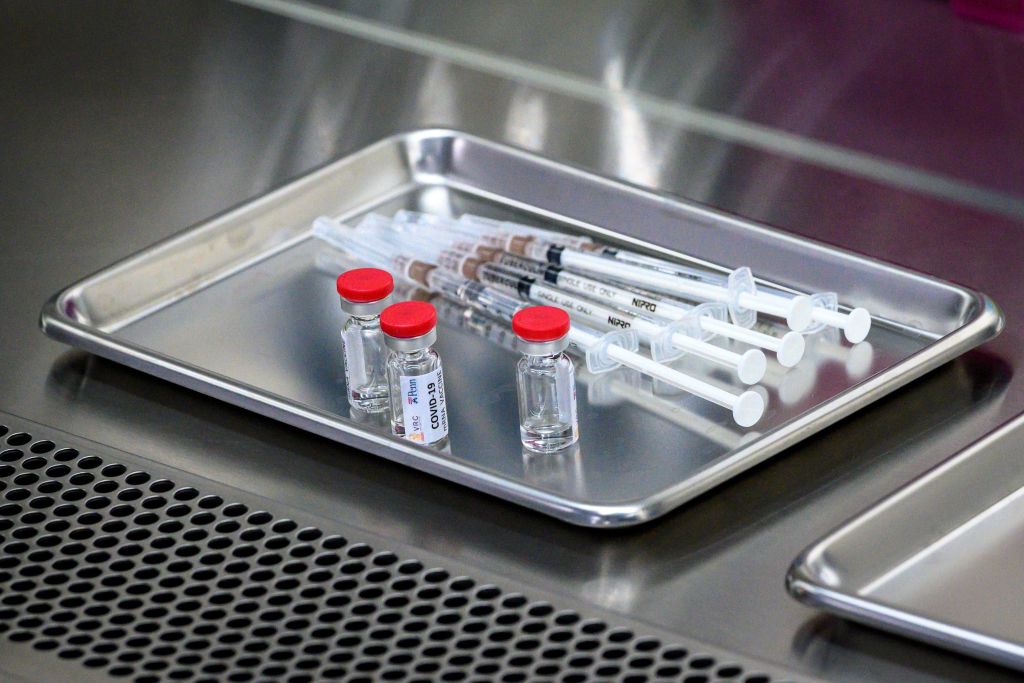Could the coronavirus lead to a reassessment of vaccine patent laws?


A free daily email with the biggest news stories of the day – and the best features from TheWeek.com
You are now subscribed
Your newsletter sign-up was successful
Adar Poonawalla, the CEO of India's Serum Institute, is working to mass-produce a low-cost coronavirus vaccine for the entire world, but the pharmaceutical industry and intellectual property laws remain hurdles, Politico reports.
Poonawalla is hoping the urgency of the pandemic leads to a reassessment of patent laws, which he says limit access to immunizations in developing countries while driving up prices in wealthier ones. "If you don't allow, for example, an Indian producer to sell in the U.S. because of some stupid rules and regulations, even though the product is identical to the U.S. product, you're going to have a supply situation," he told Politico. "And guess what. When you've got a low supply and high demand, what happens to the price? It skyrockets."
The Serum Institute does have a deal with AstraZaneca in which it will produce millions of doses of AstraZaneca's coronavirus vaccine candidate. If approved, Poonawalla's doses will be manufactured for use in India and poorer nations. But he doesn't want to stop there — he's working with Washington to enter the U.S. market at a low price and find away around strict patent and importation rules strengthened by the pharmaceutical industry's relationship with lawmakers on both sides of the aisle.
The Week
Escape your echo chamber. Get the facts behind the news, plus analysis from multiple perspectives.

Sign up for The Week's Free Newsletters
From our morning news briefing to a weekly Good News Newsletter, get the best of The Week delivered directly to your inbox.
From our morning news briefing to a weekly Good News Newsletter, get the best of The Week delivered directly to your inbox.
Not everyone agrees with Poonawalla's vision of the future, however. Paul Fehlner, a former IP lawyer for Novartis, told Politico that while critics of Big Pharma's patents "act like this stuff is trivial," in reality they're the result of PhD students working for months and years, which Fehlner believes makes the developments "worthy" of legal protection. Read more about Poonawalla and the future of pharmaceutical patents at Politico.
A free daily email with the biggest news stories of the day – and the best features from TheWeek.com
Tim is a staff writer at The Week and has contributed to Bedford and Bowery and The New York Transatlantic. He is a graduate of Occidental College and NYU's journalism school. Tim enjoys writing about baseball, Europe, and extinct megafauna. He lives in New York City.
-
 ‘Restaurateurs have become millionaires’
‘Restaurateurs have become millionaires’Instant Opinion Opinion, comment and editorials of the day
-
 Earth is rapidly approaching a ‘hothouse’ trajectory of warming
Earth is rapidly approaching a ‘hothouse’ trajectory of warmingThe explainer It may become impossible to fix
-
 Health insurance: Premiums soar as ACA subsidies end
Health insurance: Premiums soar as ACA subsidies endFeature 1.4 million people have dropped coverage
-
 ABC News to pay $15M in Trump defamation suit
ABC News to pay $15M in Trump defamation suitSpeed Read The lawsuit stemmed from George Stephanopoulos' on-air assertion that Trump was found liable for raping writer E. Jean Carroll
-
 Judge blocks Louisiana 10 Commandments law
Judge blocks Louisiana 10 Commandments lawSpeed Read U.S. District Judge John deGravelles ruled that a law ordering schools to display the Ten Commandments in classrooms was unconstitutional
-
 ATF finalizes rule to close 'gun show loophole'
ATF finalizes rule to close 'gun show loophole'Speed Read Biden moves to expand background checks for gun buyers
-
 Hong Kong passes tough new security law
Hong Kong passes tough new security lawSpeed Read It will allow the government to further suppress all forms of dissent
-
 France enshrines abortion rights in constitution
France enshrines abortion rights in constitutionspeed read It became the first country to make abortion a constitutional right
-
 Texas executes man despite contested evidence
Texas executes man despite contested evidenceSpeed Read Texas rejected calls for a rehearing of Ivan Cantu's case amid recanted testimony and allegations of suppressed exculpatory evidence
-
 Supreme Court wary of state social media regulations
Supreme Court wary of state social media regulationsSpeed Read A majority of justices appeared skeptical that Texas and Florida were lawfully protecting the free speech rights of users
-
 Greece legalizes same-sex marriage
Greece legalizes same-sex marriageSpeed Read Greece becomes the first Orthodox Christian country to enshrine marriage equality in law
